Search Results for Tag: Oil
Ex UN-climate chief speaks out on Arctic drilling
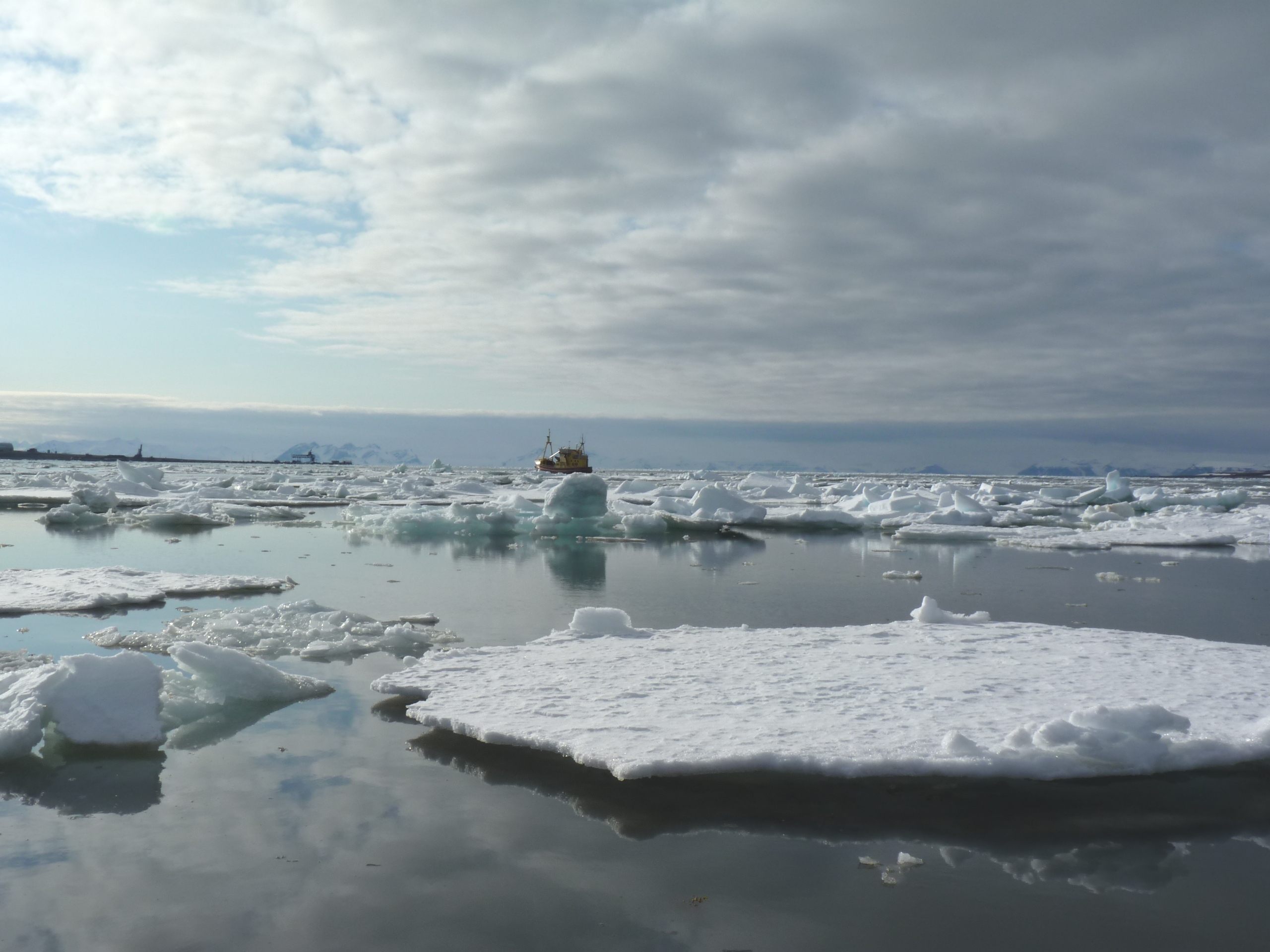
The Arctic:Physically more accessible – ethically a no-drilling zone (Photo: I Quaile)
One good thing about people no longer being in office is they are freer to come out with their own opinions. Former Executive Secretary of the UN climate secretariat UNFCCC Christina Figueres told Alister Doyle from Reuters this week that drilling in the Arctic was not economical and that warming was a threat to the environmentally fragile region. (Many thanks to the Arctic Institute for flagging that as top story in The Arctic This Week)
Passion versus diplomacy
I interviewed Ms Figueres several times when she was head of the UN climate secretariat here in Bonn. I always had the feeling she was passionate about climate protection and often wondered, as I did with her predecessor Yvo de Boer, whether they did not feel frustrated at the slow pace of climate action and the need to respond diplomatically and tread carefully on the minefield that is global geopolitics. With Yvo de Boer, that was certainly the case.
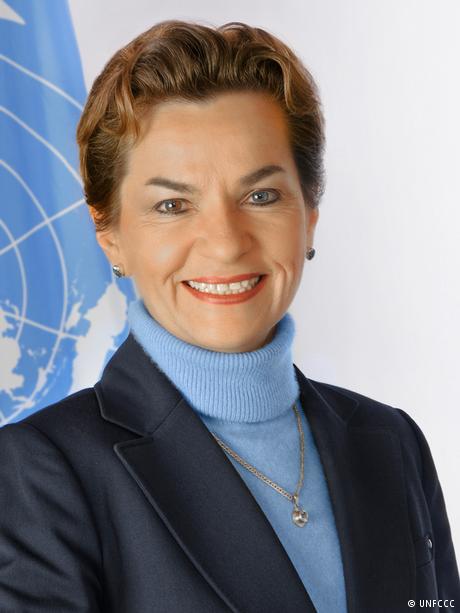
Christiana Figueres while still UN climate chief in Bonn
Back in 2014, ahead of the UN summit on climate organized by Ban-Ki-Moon, Christina Figueres told me in an interview that that mega-meeting was “an opportunity to show, to shine, and to start a race to the top, for everyone to realize that climate is not a one-sector or one company or one country issue, but an every man, every sector, every country issue. That is why it is such a broad invitation to all sectors, all countries, to come forward.”
Competition to halt climate change?
Wouldn’t it be fantastic to see countries racing to be the real climate champions? I would love to be able to say that has actually happened, but based on our global emissions to date and the failure of the latest working meeting in Bonn to make real progress in preparing this year’s climate conference in Poland at the end of this year, I do not have the feeling that there is a “race to the top” in cutting emissions and halting global warming.
The Trump factor
Clearly, one major factor in all this is the election of Donald Trump as US President. At that time, the UN climate chief told me “the second term of President Obama has seen an accelerated and upscaled engagement on climate change in particular. With the latest move of the Obama administration to ask EPA to come forward with regulations on power plants. That is probably the most ambitious action the US government has taken on climate change”.
What a disappointment to see the climate-sceptical US administration backpedaling on all of that and opting out of the Paris Agreement.
No action without catastrophe?
Figueres comes from Costa Rica, a country that she says is a model when it comes to climate action:
“Costa Rica has had a carbon tax for over 20 years, it has internalized the cost of this, and so is one of the countries to which many countries are looking a) for the carbon pricing model we have, also for the system we have of environmental payment for services, which we pioneered in Costa Rica and which is being used in other countries. It’s a country that doesn’t mind experimenting, is very risk-friendly and has actually benefitted from a these forward-leaning policies particularly with respect to the environment and holds a high repute amongst other countries.”
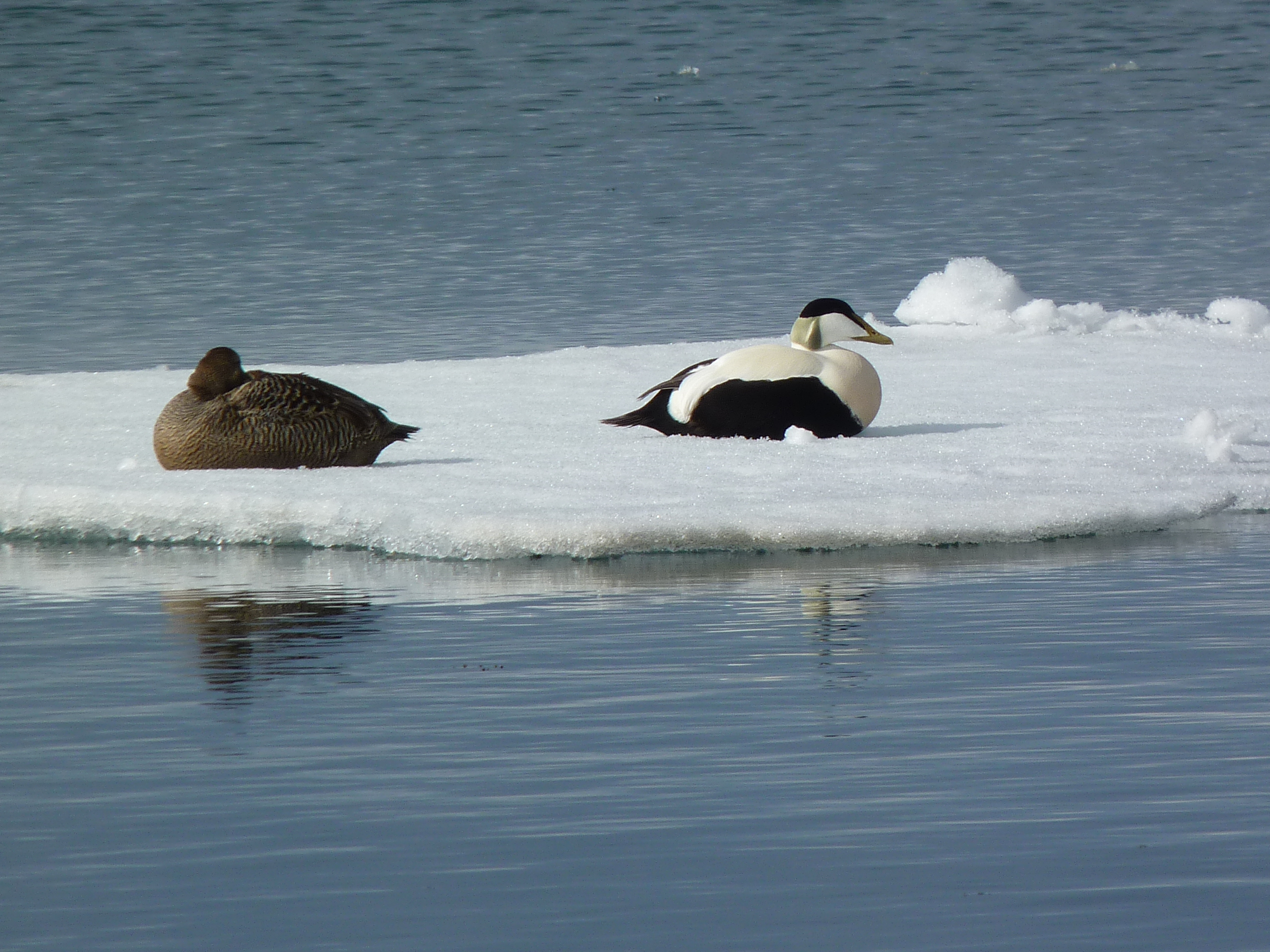
Global climate policy – all afloat? (I.Quaile)
Alas, there have not been many others following the Costa Rican path.
“They have a front-row seat to the havoc climate change is already causing. No wonder they’re moved to action” Katie Quirk wrote in an article for Slate last year. If it is catastrophic impacts that fuel climate action, we may not have all that long to wait.
Now we have had several years of record global temperatures and Figueres says the heat is threatening “everything from Australia’s Great Barrier Reef to ice in Antarctica”.
And “the Arctic has been rendered undrillable,”she told Reuters.
Paradoxically, the easier access to our icy north becomes, the more difficult it becomes to justify commercial activities up there from the point of view of stabilizing the world’s climate.
Yet there are still governments and companies who think it worth drilling in the Arctic. President Trump’s administration is even considering drilling in part of the Arctic National Wildlife Refuge.
Figueres says global emissions should peak by 2020 – a target now highly unlikely to be reached in that short a time.
At the same time, searching for oil and gas in the Arctic would “take years to develop any finds”, she says, suggesting the money would be put to a better use developing renewable energy.
“The stakes are visibly higher than they were just a few years ago,” she said in the recent Reuters interview. Indeed, and they are rising all the time.
Cheap oil from the Arctic? Fake news, says climate economist Kemfert

Nothing fake about melting ice. Eiders, off Svalbard (I.Quaile).
This week I came across an interesting publication about to come on to the German market.
“The fossil empire strikes back” (Das fossile Imperium schlägt zurück) is the translation of the catchy title of a new book in German by Professor Claudia Kemfert, head of the department of energy, transportation and environment at the German Institute for Economic Research in Berlin (DIW Berlin,) and professor of energy and sustainability at the Hertie School of Governance, in Berlin.
She has also acted as advisor to the German government, the European Commission and is on the steering committee of the renowned Club of Rome.
A fossil fuels revival: happening now, or alternative facts?
I called her up to record an interview for our Living Planet radio show to find out what was behind the headline, and the sub-title: “why we have to defend the “Energiewende” (energy transition) now.
Prof Kemfert believes the fossil fuels sector is really working hard at making a comeback. That, she says, is not fake news, but the fossils lobby makes use of the latter in its attempt to turn the clock back in terms of energy production.

Kemfert argues for renewables. Copyright: Neuberg, Sebastian Wiegand
While the global transition towards renewable energy has been successful in recent years, with the costs of alternative energies reduced, the Paris Agreement signed and ratified, now, she says, the fossil fuels sector is striking back.
She says they do it by spreading fake news, creating myths about restrictions on cars, speed limits, blackouts, globally, but especially in the USA under the Trump administration. So, she argues, we have to defend the energy transformation. The window of opportunity for climate action is still open, but we are losing time.
The power of fake news
Kemfert’s aim is to debunk the myths, which she is convinced are being used to give renewable energy a bad image. Some of the examples she cited to me are false claims that renewables are more expensive, or that reliance on alternative energies will mean blackouts.
“This has never happened in Germany”, she notes, the country that gave the “Energiewende” its name and pressed ahead with the transition to renewables in recent years.
So how can fake news of this kind make such an impact that Kemfert and other like-minded experts are worried about an oil and coal revival?
“If you repeat this all the time, and repeat it on social media, people think it’s true”, she told me.
“The danger is that they can be successful”.
“The global energy transition is in danger”, she is convinced. “We are losing time to bring greenhouse gases down and help the planet to survive.
“The lobby of the fossil empire is extremely strong… the whole campaign with myths and fake news is really successful, because a lot of people believe what they say”.
So are the fossil fuel lobbyists just better at getting a message across than the other side? There could be something to that, Kemfert agreed. She says the “green lobby” is not aggressive enough. People think “we are the good ones, the energy transition comes by itself”- this is not true. Now it’s time to fight for it”.

We still have a window of opportunity, says Kemfert (Pic. I.Quaile, Alaska)
Time to march?
She calls on all scientists and people who want to protect free and democratic science, to take part in the Marches for Science, planned to take place round the globe on April 22nd.
Of course I wanted to know how she thought the global counter-attack by the “fossil empire” would impact the Arctic.
Yes, she said, this push for a fossil fuels revival could provide additional motivation to those who would like to push ahead with Arctic drilling, as climate change makes for easier and less expensive access:
“There are some aggressive industries, especially coming from the oil and gas sector, who have interest to drill for oil in the Arctic region.
For them, she says, easier access thanks to climate change would be “a nice, so-to-say side effect”.
But for the planet as a whole, climate change is so dangerous that any potential short-time business benefits are just not worth thinking about, says Claudia Kemfert:
“As a climate economist, I cannot say this (oil from the Arctic) makes economic sense, because the costs of climate change are much higher than lower costs, for example, for drilling oil in the Arctic. The costs of global climate change are so high that it cannot outweigh the cost reduction of oil drilling in the Arctic when there’s low ice. We have to move away from oil and gas, this is why it’s more economically efficient to go for an energy transition instead of drilling in areas where we have climate impacts, we are causing environmental difficulties and where we know that burning these fossil fuels will create climate change. That’s really the wrong way to go”.
Kemfert’s book is only being published in German at the moment, but there is more info on her home page, and a longer version of the English interview I conducted with her will be coming up soon on Living Planet and on the DW website.
Will new climate scientist on board influence Exxon?
Last year I had an interesting guest in the studio here at Deutsche Welle. We talked for a good half hour about climate change and the ocean and the need for the Paris Agreement to be put into action, and whether we can still save the Arctic ice as we have known it in our lifetimes.
Excerpts from the interview were broadcast on Living Planet and published online.
Susan Avery is an atmospheric scientist. She was President and Director of the renowned Woods Hole Oceanographic Institute from 2008 to 2015, and became a member of the scientific advisory board to UN Secretary General Ban Ki Moon in 2013. She was in Bonn for a lecture organized by Björn Müller-Bohlen from the department of strategic partnerships at the Forum of International Academic Sciences in Bonn, to explain to people here how climate change is affecting the ocean.
I was surprised to say the least when I saw that from the beginning of February Dr. Susan K. Avery had been elected to the board of directors of ExxonMobil.
Topsy-turvy world?
So the former Exxon chief Rex Tillerson has taken the key post of Secretary of State in the Trump administration, climate skeptic Scott Pruitt takes over the EPA, the world worries about the future of the climate and the environment – and a leading climate scientist has joined the “largest publicly traded international oil and gas company and one of the largest refiners and marketers of petroleum products”, as ExxonMobil describes itself. It is also at the centre of a huge controversy over claims that it denied climate change, covering up facts and funding climate skeptic bodies. Interesting times indeed. (The Dawn of the Trumpocene?) What are we to make of it all?
I emailed Dr. Avery to try to arrange another interview to discuss her motivation and expectations. She did respond swiftly, telling me she was “honored to be elected to the Board and look forward to serving in that capacity.” But interview requests are being handled by Exxon.
Reactions to her appointment have been mixed, ranging from those who see this as a mere greenwashing type of move by Exxon, and those who think this represents a gradual shift in thinking in the corporation (pragmatic shift to renewable energies given the problems ahead for fossil fuel companies?) and the optimists who think this could possibly even be a chance for a climate expert to influence the policies of the fossil fuel giant and a sign that the times are ‘a changin’.
From the “horse’s”mouth
I decided to have another look and listen to the interview I recorded with Dr. Avery last year, to remind myself and those who will be watching her actions with interest, of what she stands for when it comes to protecting the climate, the ocean and the Arctic.
She is certainly in no doubt about the human factor in climate change. When I mentioned that we humans had been “interfering” with the climate, she laughed good-naturedly at my under-statement, and went on to elaborate on how we are increasing the temperature of the atmosphere by infusing carbon into it. She clearly named fossil fuels as a cause. So what, I wonder, will she be telling the board of ExxonMobil?
Our subject was the effect of greenhouse gas emissions on the oceans in particular. She stressed that while 25 percent of the carbon dioxide we release goes into the atmosphere, a stunning 93 percent of the extra warming created is in the ocean. I went on to ask her about the impacts:
“The carbon dioxide we’ve put into the atmosphere already and the heating associated with that means that we’re already pre-destined for a certain amount of global temperature increase. Many people say we have already pre-destined at least one and a half degrees, some will say almost two degrees. That’s why it’s really important to address the warming questions. And I was really pleased to see the Paris Agreement finally signed off on.”
Fossil fuel threat to the ocean
With the future of US participation in implementing the Paris Agreement very much up in the air under the Trump administration, one wonders how Avery is going to push the decarbonisation of the economy necessary to keep anywhere near the two degree limit, on the board of one of the world’s biggest oil and petroleum concerns.
She also stressed in her talk with me the huge threat to the food chain posed by ocean acidification, as carbon dioxide emissions change the PH of the ocean.
“Our coral reef systems and a lot of our ecosystems in the ocean are having a battle with warming, and those ecosystems that involve shell production and reproduction, as in our reef systems, are also battling acidification issues. This is really critical, because it attacks a lot of the base of the food chain for a lot of these eco-systems. “
Another of the threats to the ocean and the creatures in it is pollution, and Avery told me her time as head of Woodshole was a time of “many crises in the ocean” – including the Deep Water Horizon oil spill:
“That was a real challenge for us in terms of looking at the technologies we have in a different way, solving a different type of problem, and from these crisis moments we learned a lot about our science and our technology, and how to improve it and go forward.”
Well, here’s hoping that knowledge and Dr. Avery’s expertise here will help the company where she is now on the board.
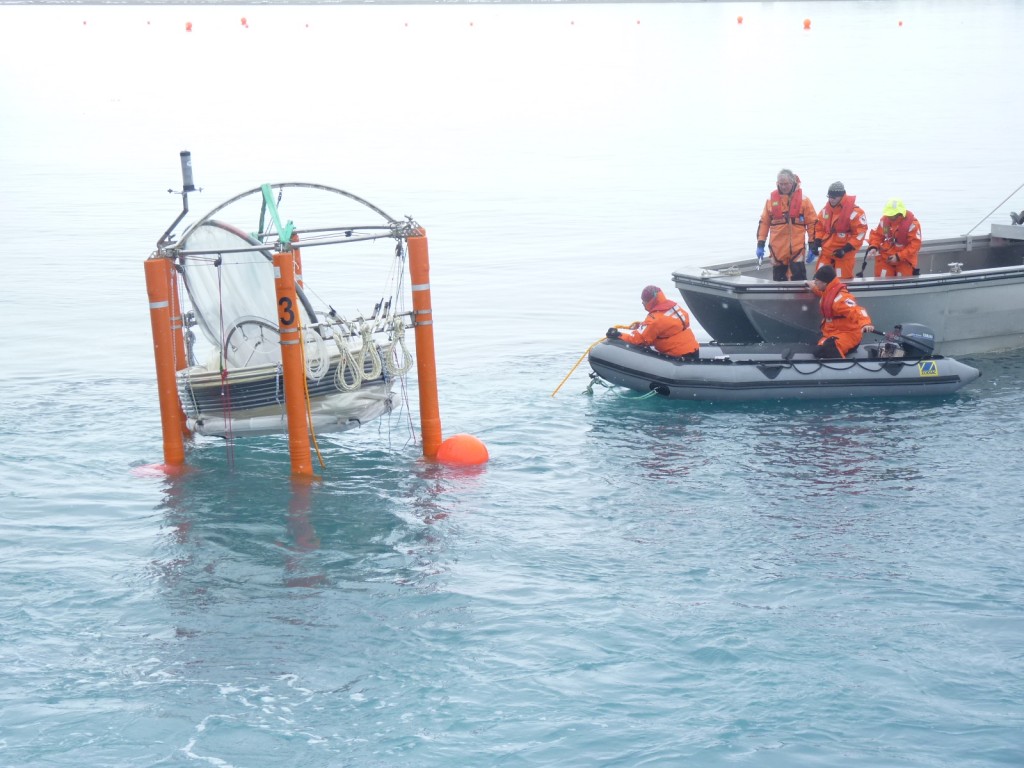
Scientists are concerned about the effects of ocean acidification. This mesocosm is monitoring in Arctic waters. (I.Quaile)
Kudos for the journos
Another point that came out of our interview was Avery’s firm belief in the key role the media have to play in explaining what is happening to our climate and environment to “ordinary people”.
“It is things like Living Planet and others that really begin to educate people and involve people in understanding their environment and their planet,” she said in the DW studio.
As host and producer of Living Planet together with my colleague Charlotta Lomas, it was good to have that acknowledgement from a leading scientist and adviser to the UN. Avery also mentioned progress in recent decades in raising public awareness of environmental issues, such as pollution or acid rain, thanks not least to media coverage.
Unfortunately that job is not made any easier – especially in the United States – with an administration that tries to gag journalists and, it seems, any organization that does not spread the information the government think should be spread.
Motives and methods
So what motivates someone like Susan Avery to take on a controversial position like board membership on a company whose main business results in harmful changes to the planet which she has been working for years to publicise? Perhaps another snippet from the interview can shed some light, when I asked my guest Avery how she had come to be a member of the board of advisors to Ban Ki Moon (not that I would compare that to joining ExxonMobil).
“I was intrigued by the opportunity to play on a stage level that was very high politically, and making sure that science was interfaced in a number of dimensions, into the policy and decision-making process at that level. The committee itself is a wonderful board in terms of the different disciplines represented, different countries represented, different perspectives we all have on the science and the environment, and on human health issues, that the UN needs to be cognizant of.”
Clearly, this is a woman who likes to be in influential positions – and to bring different camps and expertise together:
“We talked a lot about science, the policy-society interface, the role and engagement of stakeholders, those are governments at all levels, the business community, and conservation.
What about the Arctic?
Of course one of the Iceblogger’s most urgent concerns is what climate change is doing to the polar regions. With record temperatures in the Arctic and record low sea ice cover, I asked Avery to sum up the impacts for our Living Planet listeners. She expressed her concern that “we are beginning to see a very rapid increase in ice loss in the Arctic”. She cited the melting of the big land ice glaciers as a major contributor to sea level rise. She talked of how not only atmospheric temperature but warming ocean waters are degrounding glaciers and melting ice from below:
“That is a major concern for sea level rise, but also because when the land-based ice comes into the ocean, you get a freshening of certain parts of the ocean, so particularly the sub-polar north Atlantic, so you have a potential for interfacing with our normal thermohaline circulation systems and (this) could dramatically change that. Changes in salinity are beginning to be noticed. And changes in salinity are a signal that the water cycle is becoming more vigorous. So all of this is coupled together. What’s in the Arctic is not staying in the Arctic. What’s in the Antarctic is not staying in the Antarctic. I would say the polar regions are regions where we don’t have a lot of time before we see major, massive changes”.
So let us hope Dr. Avery will be able to convince her fellow board-members and the decision makers at ExxonMobil about that – and about what has to happen. Fossil fuel emissions in general have got to go down. And the fragile Arctic in particular is in need of protection. Clearly, she has her work cut out for her.
Is there still time?
Reporting Avery’s appointment to the ExxonMobil board, the news agency AFP quotes her as saying:
“Clearly climate science is telling us (to) get off fossil fuels as much as possible.”
I asked her whether she believed, given that we have already put so much extra CO2 into the atmosphere and the ocean, that there was any way we would be able to reverse what is happening in the Arctic. Her reply – unsurprisingly – was not too reassuring:
“I don’t have an answer, to be honest. I think we’re still learning a lot about the Arctic and its interface with lower latitudes, how that water basically changes circulation systems, and on what scale. (…)We know so little, about the Arctic, the life forms underneath the ice (…) And I think it’s really important, because the Arctic will be a major economic zone. We’ve already seen the North-West Passage through the Arctic waters, we’re going to see migration of certain fisheries around the world, and we don’t even know completely what kind of biological life we have below that ice. We have the ability to get underneath the ice now. I call these the frontiers, of the ocean, and that includes looking under ice. It’s a really exciting time.”
If that excitement can be put into protecting the fragile polar ecosystems rather than taking advantage of our emissions misdeeds to date to use easier access for commercial exploitation, I am all for it.
ExxonMobil remains a primary target of environmentalists. It has been the subject of investigative reports by environmental news nonprofit Inside Climate News and others, saying it “manufactured doubt” about climate science even while contradicted by research by its own climate scientists. The company says the reports are biased, but faces government investigations over the controversy. In January, a Massachusetts court ruled the oil giant must turn over 40 years of documents on climate change, in a win for Massachusetts Attorney General Maura Healey, who has described the probe as a fraud investigation. ExxonMobil has countersued against Healey, arguing she lacks jurisdiction in the matter.
As I indicated above, there are environmentalists who were not impressed by the appointment of a climate scientist to the fossil fuel giant’s board. AFP quotes Shanna Cleveland of Ceres, a nonprofit group that works on shareholder actions to pressure companies to address climate change. She called the move a “really good first step, but not much more than that”, and fears Susan Avery could be a “lone vote in the wilderness” on climate change given ExxonMobil’s record on the issue.
The climate advocacy group 350.org dismissed the appointment as “little more than a PR stunt.”
Scientists to the fore
But at a time when some critics say the Trump administration is threatening environmental democracy in the USA, I would prefer to see Dr. Avery’s new position as a move in the right direction, if a tiny one.
With scientists gearing up to march on Washington in the not-too-distant future, we can do with experts who acknowledge, understand and call for action on climate change on every level, in every corner.
Susan Avery described her time on the UN scientific advisory board in her interview with me here in Bonn as as “a fun exercise.” In the current climate, I cannot imagine the same will apply to being the climate advocate on the board of a controversial fossil fuels giant like ExxonMobil.
Some Arctic good news – not #fakenews!
With the environment and climate under constant fire from the actions of President Trump, it is great to end the week with a little piece of good news.
This is the time of the year when Arctic buffs gather in Tromso in Norway for the annual Arctic Frontiers conference. I couldn’t make it myself this time, but have been following some of the action online, including the side-events which are often amongst the most valuable at international conferences.
Push for clean shipping
One thing that made me smile was the announcement that the famous cruise ship operator Hurtigruten had signed the Arctic Commitment, calling for a ban on the use of marine heavy fuel oil (HFO) in the Arctic.
The Clean Arctic Alliance – a coalition of environmental NGOs – is calling on the international community to sign up to the Arctic Commitment with the aim of protecting Arctic communities and ecosystems from the risks posed by the use of HFO.
The CEO of Hurtigruten, Daniel Skjeldam, signed the Arctic Commitment in Tromso.
“The use of heavy fuel oil has already been banned in the Antarctic, now it’s time to ban it in the Artic as well”, Skjeldam said. His company has chosen not to use heavy fuel oil in any of its ships.
Oil spill risk in icy waters
He urged the shipping industry to be frontrunners in “promoting regulations that will secure sustainable Arctic growth”.
“An accident involving a mega ship and spill of heavy fuel oil in the Arctic should represent an environmental disaster”, Skeldam said. There has been no shortage of experts testifiying to that.
“If heavy fuel oil is spilled in cold Arctic waters, it will have larger consequences than anywhere else. The Arctic deserves sustainable growth and innovation, and the industry needs to move first”, the shipping executive confirms.
Don’t wait for a ban
Indeed. The shipping industry could make a huge difference here by taking action without waiting for legislation or restriction. With climate change speeding ahead and the Arctic struggling to cope with the rapid changes occurring as temperatures reach record highs, while powerful politicians like Presidents Trump and Putin seem more interested in exploiting the Arctic than protecting it, companies and consumers have to take on more responsibility.
In December 2016, Canada and the US announced a joint “phase down” of HFO from their respective Arctic regions. Here’s hoping things will move forward on this in spite of the current political climate.
The Clean Arctic Alliance believes a ban on HFO in the Arctic can be achieved by 2020 if governments and business demand action by the International Maritime Organization to ban the use of HFO. In the meantime, the group is encouraging the shipping industry to switch to higher quality, alternative fuels.
Christoph Wolff, Managing Director of the European Climate Foundation, a member of the Clean Arctic Alliance, says the debate on HFO is over. “Banning the use of heavy fuel oil to power Arctic shipping will not only minimize the risk of spills, but will also help reduce climate-warming emissions in the region”, he says.
Thinking positive
When I first reported from Arctic Frontiers back in 2007, there was already a heated debate going on between those who want to develop and commercially exploit the Arctic’s resources, against the background of a warming climate, and those who want to restrict access and activity in the interests of the fragile environment and the communities who live there. I remember a discussion on the paradox of climate warming making it possible to extract more oil from the Arctic which would, in turn, cause more emissions and further melt. Shipping, too, both passenger and freight, becomes easier as the Arctic ice melts, but, in turn, causes high emissions as well as other pollution in the sensitive region.
So let’s go into the weekend with a round of applause for the tireless campaigners for a clean Arctic. It is hard for an environment journalist to be optimistic in these difficult times. But every little helps. And winning over the cruise ship industry which so many people associate with holiday expeditions into remote areas with intact nature and spectacular wildlife would be a great way to get a wider public “on board” for the voyage to protecting the icy regions of our warming planet.
Arctic climate (anti-)Trump card in Davos
With the Trump inauguration looming large, we have every reason to be more concerned than ever about the prospects for the climate. And given that the Arctic is warming twice as fast as the rest of the world, the high north could be said to be in double trouble.
All the more reason to look beyond the political stage in the narrowest terms to push the need for climate action. Take, for instance, the “Arctic Basecamp” which has been set up in Davos in Switzerland, where that illustrious gathering the World Economic Forum (WEF) is underway. “Responsive and responsible leadership” is the theme, with 3,000 participants attending, more than ever before. And the biggest delegation is from the USA, with 836 participants.
It's cool to learn how to build an #Arctic Basecamp but it's cooler to learn why #ArcticMatters Will you join on FB LIVE 10am CET, tomorrow? pic.twitter.com/1HUHuMqM0O
— ArcticBasecamp Davos (@ArcticDavos) January 17, 2017
Given the president elect’s views on climate change, the decision by some influential scientists to use the mega economic gathering of the great and mighty is a smart move. It seems the time has come to acknowledge that we cannot rely on governments alone to halt climate change and preserve the Arctic ice. Maybe we just have to admit that business has a huge impact, huge potential, and should bear a lot of the responsibility for climate protection? And of course, the chance to get an urgent climate message across to a group of highly influential people from business and politics is just too good to miss.
Time for some responsive and responsible leadership for the Arctic?
A group of leading scientists are holding an Arctic Science Summit in Davos on January 18th, and plan to call on global leaders for immediate action on the Arctic. The summit is a collaboration between Lancaster University, the British Antarctic Survey (BAS) and the Swiss Federal Institute for Forest Snow and Landscape Research (WSL).
Against the background of unprecedented temperatures almost 20 °C (36 Fahrenheit) warmer than normal in some parts of the Arctic this winter, the summit is designed as a call to action to global leaders to apply the theme of “Responsive and Responsible Leadership”, in tackling the global risks posed by Arctic change. Al Gore, Chair of the Climate Reality Project and Christiana Figueres, the former Executive Secretary of the United Nations Framework Convention on Climate Change, are amongst the high profile figures invited.
The summit is being hosted in Arctic Basecamp style tents in the grounds of the WSL, which is aptly positioned close to the official delegate hotel. A good publicity stunt. The tents are a catchy contrast to the luxury accommodation around them. The equipment is provided by the British Antarctic Survey, (BAS) another of the organisers. A reputed scientific organization and active in a region that captures the imagination of a wide audience as the coldest, remotest place on the planet. And which, still, is not immune to the effects of global warming.
Global platform for Arctic action
To Iceblog readers, the message from Jeremy Wilkinson, one of the organizers from BAS, comes as no surprise: “What happens in the Arctic doesn’t stay there. The Arctic is the canary in the coalmine for the world’s climate.” But many of the world’s most powerful decision-makers still haven’t got the message, he says. (Tut-tut, not all following the Iceblog??):
“It (the Arctic) is sending us a warning cry that has profound consequences and risks globally. Yet the Arctic remains invisible to the world’s most powerful decision-makers. We want to change that.”
His colleague from the British University of Lancaster, Professor Gail Whiteman, writes on the BAS website:
“We know that science has important answers in assessing the global risks associated with the Arctic ice melt and we need to make this as visible as possible in Davos. Arctic change is at a critical juncture; hard choices need to be made. These must be evidence-based and not ideologically driven. Ultimately we want to see a new Global Platform for Arctic Action, and it starts here with this summit.”
Renowned climate expert Professor Konrad Steffen is Director of the Swiss Federal Institute for Forest, Snow and Landscape Research WSL. He, too, stresses the need for urgent action and the global relevance of the melting ice:
“The Polar Regions, as well as Alpine regions, will experience two to three times the mean level of global warming predicted for the future. We need to act swiftly to delay, or prevent, the loss of the ice masses in the mountains and the shrinking of the two polar ice sheets which will lead to unsustainable sea level rises.”
“Everybody who’s anybody…”
In a piece for the Arctic Journal entitled “Bringing the Arctic to the mountain”, journalist Kevin McGwin writes:
“Unofficially, Davos is the place to be if you consider yourself to be anyone in politics, business or the non-profit industry, and folks who attend have a saying of their own: the more programme events you turn up at, the less you get out of it. The real action takes place on the sidelines.”
Here’s hoping there is plenty of that at the Arctic Basecamp. McGwin goes on:
“Considering that 3,000-person guest list starts with António Guterres, the newly installed UN secretary-general, and encompasses multiple heads of state (including Xi Jinping) and captains of industry from over 1,000 companies, there is probably something to this.”
Indeed. If you want to reach a lot of very influential people with a message about risks associated with climate change, Davos is certainly one place to do it. McGwin notes that the major Arctic Frontiers gathering is taking place in Tromso, Norway, at the same time. I have attended that event several times in recent years. It is undoubtedly an important meeting with a scientific and a political section. But the global players gathered in Davos should, in principle, be able to exert far more influence when it comes to changing the economic and energy patterns which have been the basis for bringing about the climate change that is melting the Arctic.
Arctic melt – business opportunity?
The WEF also reaches wider media coverage, and, arguably, those who really need to change things. Preaching to the converted will not stop climate warming. McGwin quotes Gail Whiteman:
“Few outside the region have an idea of the role the Arctic plays, or the changes it is facing. Those that do tend to see the changes as an opportunity.”
This puts one of the key problems with Arctic climate change in a nutshell. Melting ice means easier access, more activity and thus higher risks for the fragile ecosystem – and ultimately, possibly more climate warming through increased emissions.
Professor Whiteman told McGwin:“We are at Davos to make the Arctic visible. Arctic change is at a critical point, and the kind of decisions that need to be made start at Davos.”
The organizers will also be circulating a petition asking Davos participants to contribute to a kitty to help fund an information campaign to keep decision-makers up to date on what is happening in the Arctic.
It seems the Arctic basecamp idea first came up at Arctic Frontiers in Tromso back in 2012. The Arctic Journal says Whiteman realized, during a discussion there, that people were very keen to get people in the boardrooms of companies to talk about the risk Arctic change was posing to their business. It dawned on Whiteman that the place to reach these people would be in Davos rather than Tromso.
At last year’s meeting, the WEF issued an Arctic Investment Protocol. Whiteman, worries that “once investors take an interest in the Arctic, they will see the opportunity but overlook the risk”.
If the message that “what happens in the Arctic doesn’t stay in the Arctic”is to sink in, McGwin concludes his article, then “what happens in Davos must not stay in Davos”.
Agreed, colleague. But, as we know, competition for public attention is fierce. Let us hope that the Arctic Basecamp will not be upstaged by the other events going on in the Swiss alps this week. And that the overall focus there “Responsive and Responsible Leadership”, and the need for international dialogue and concerted action rather than isolationism will still make the world headlines as the Trumpocene commences across the Atlantic.




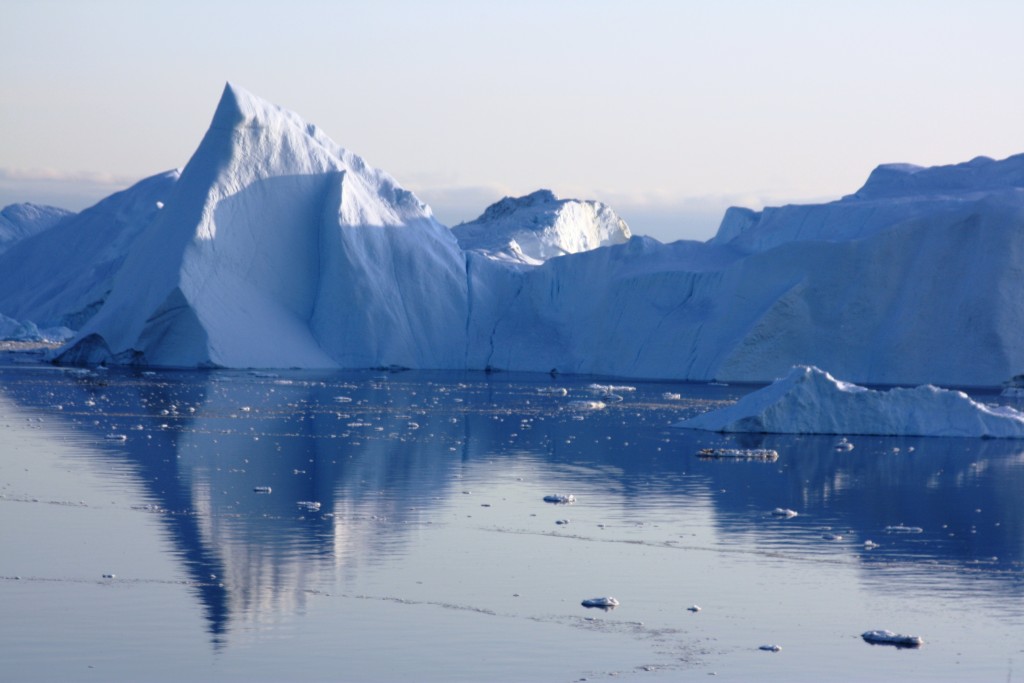
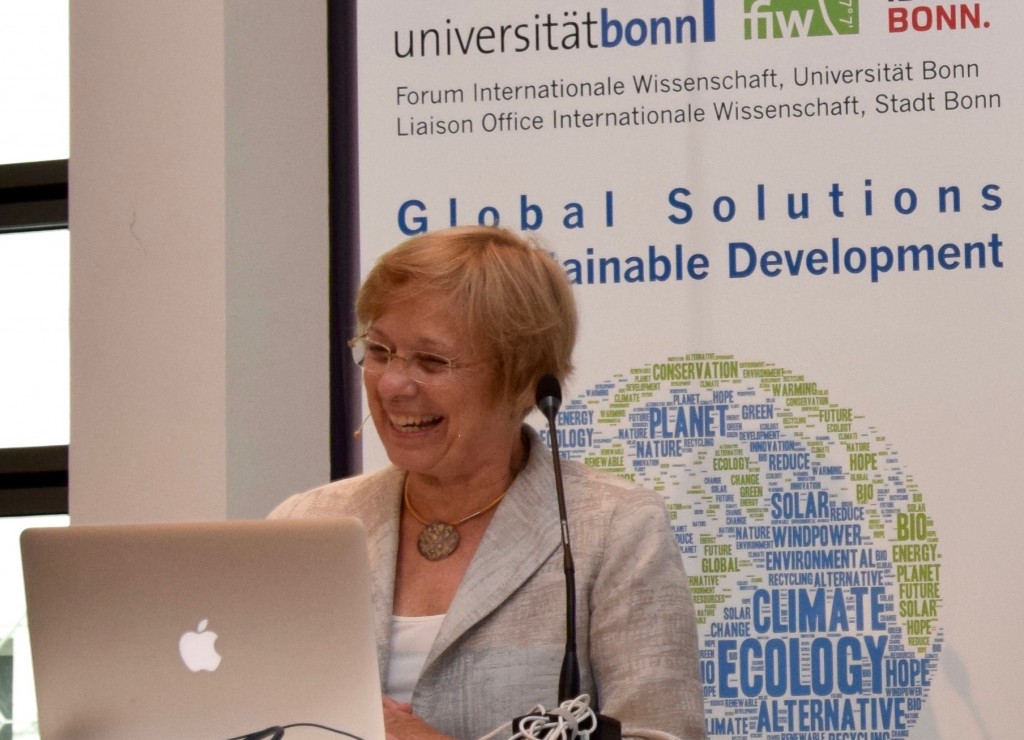
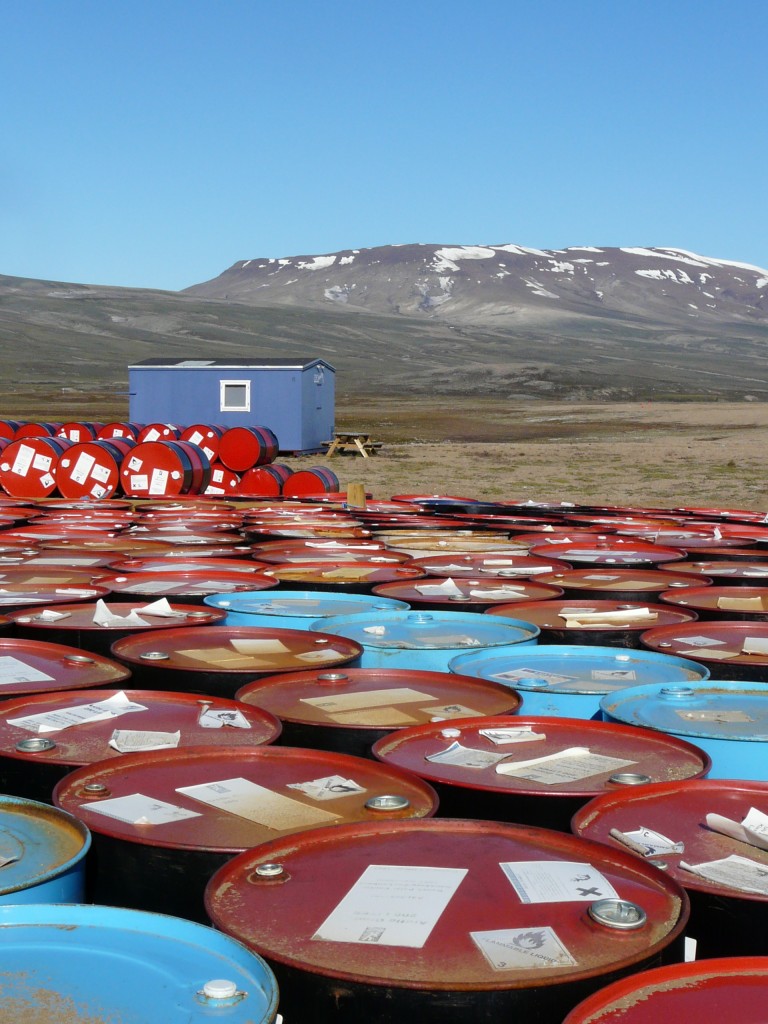
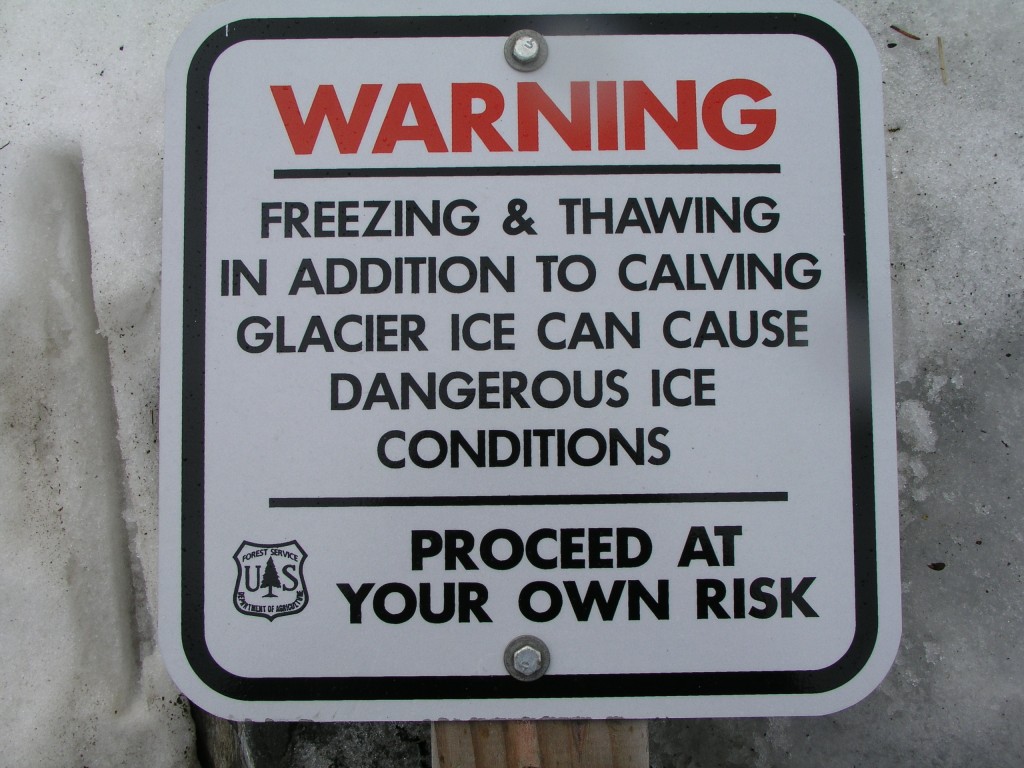
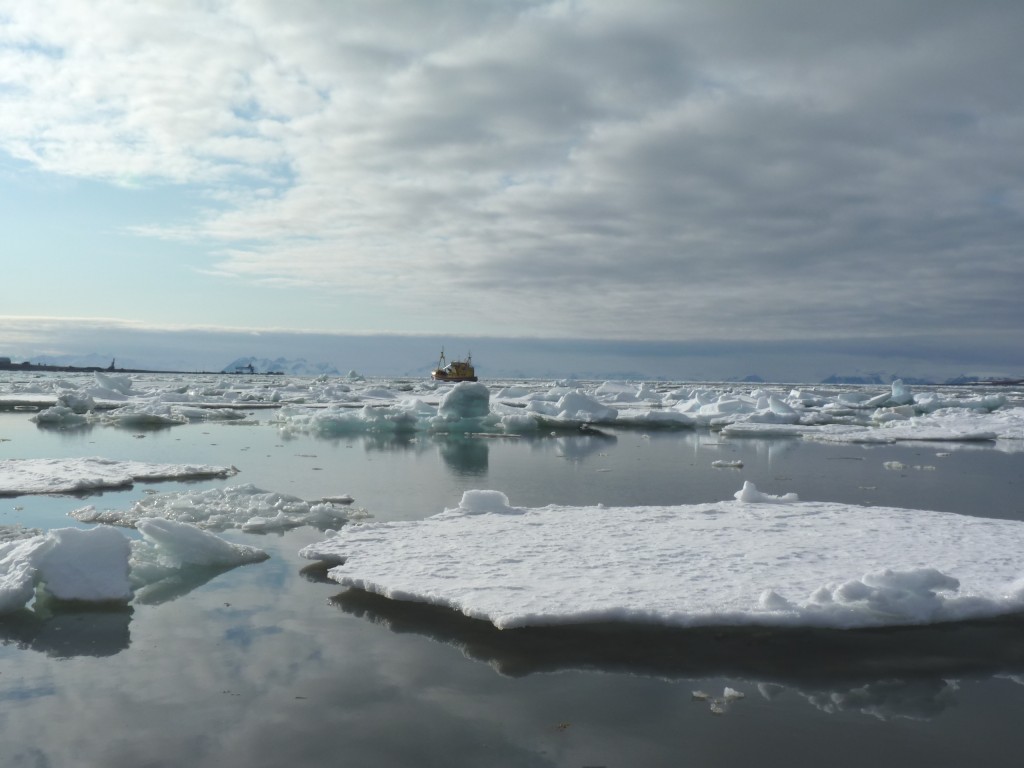
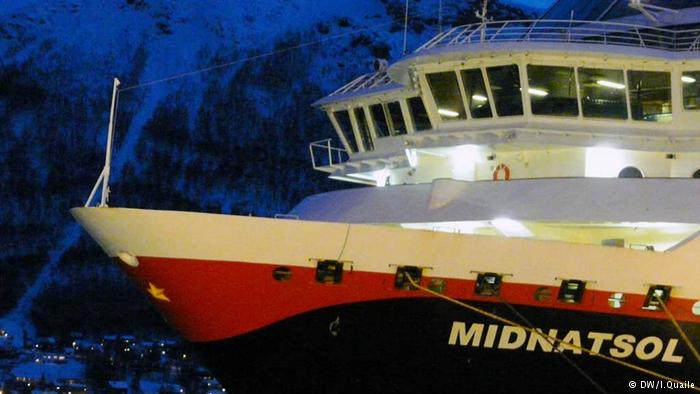
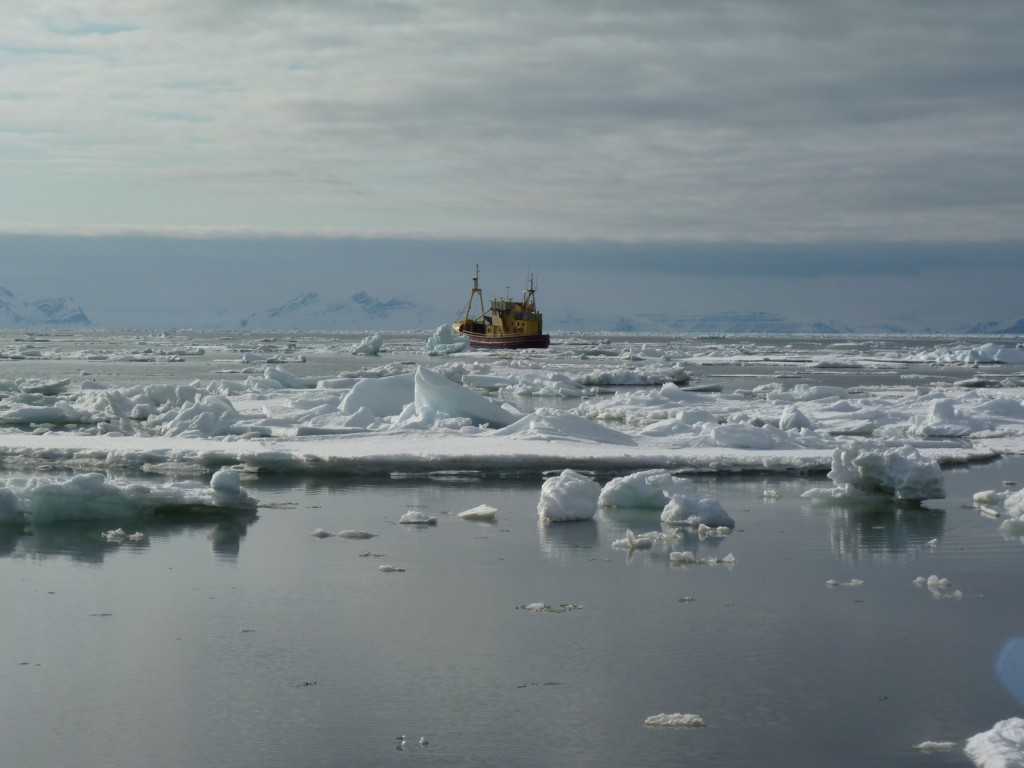

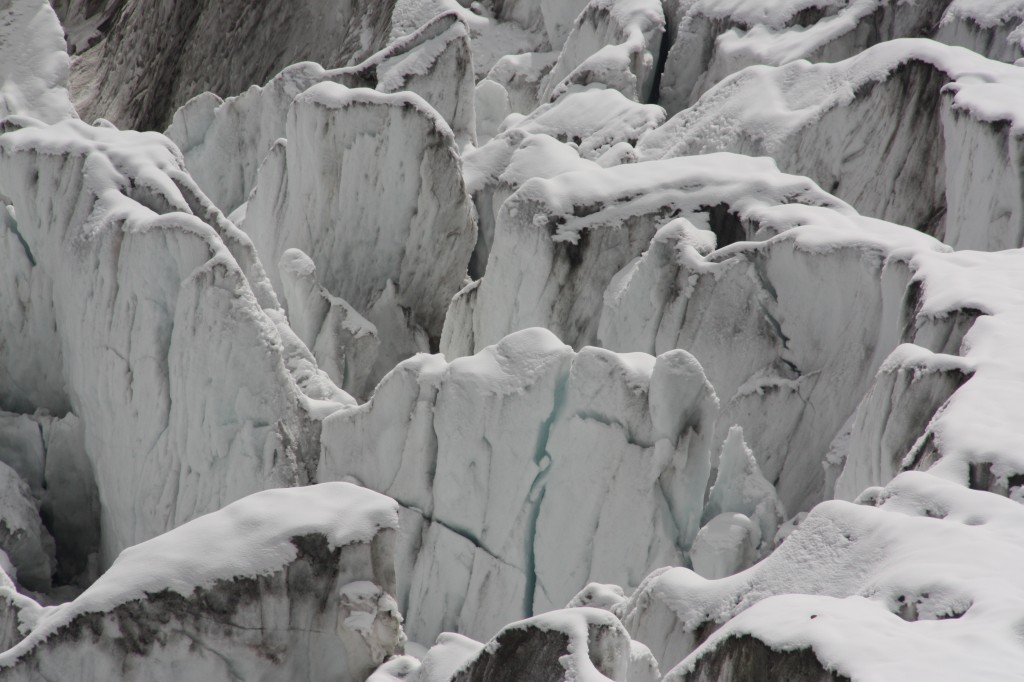
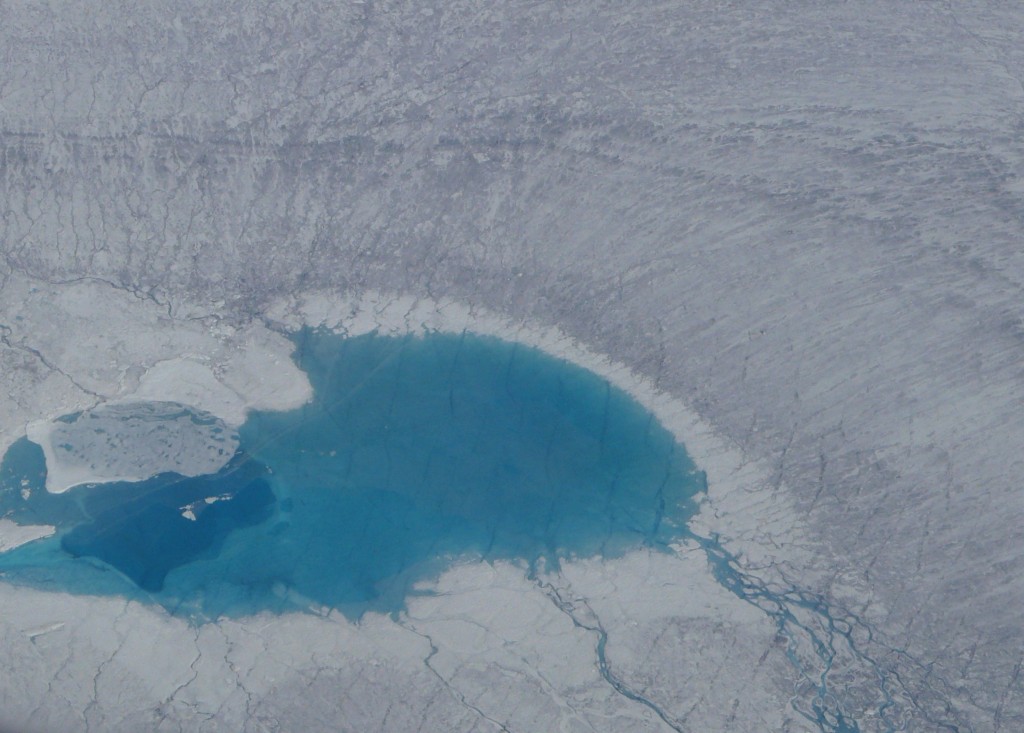

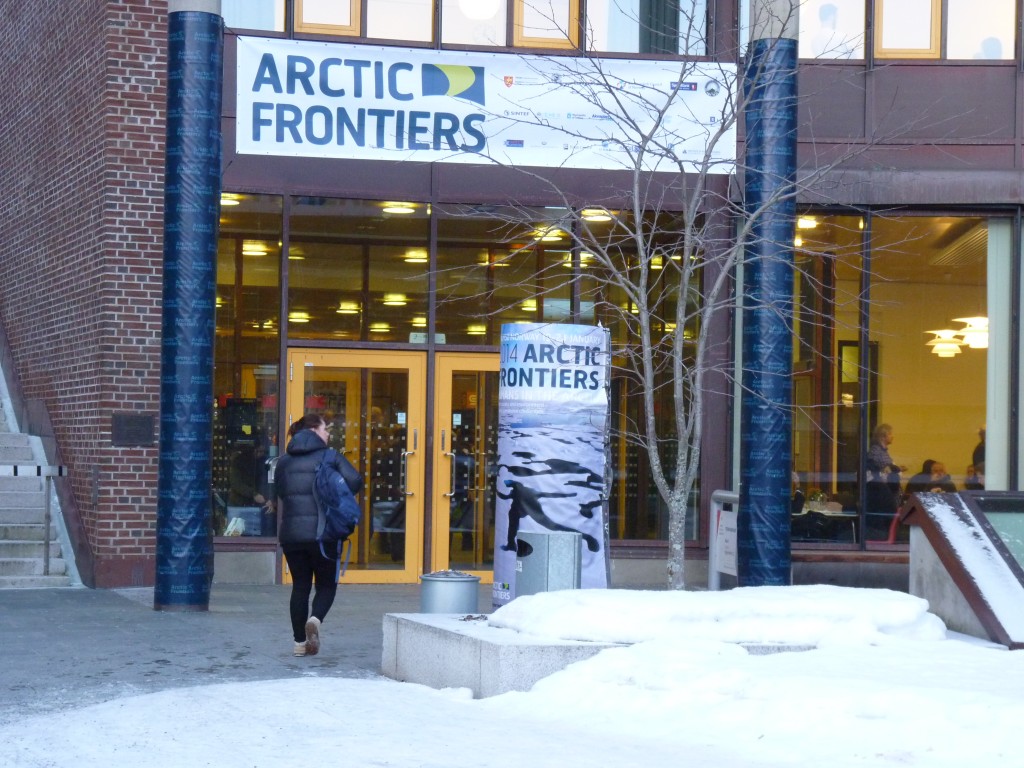
















Feedback